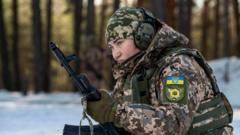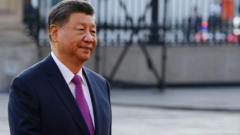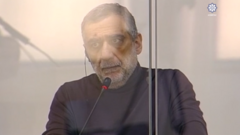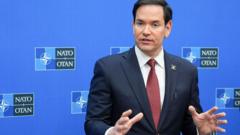Individuals who escaped Russia amid the Ukraine conflict express skepticism toward peace negotiations, doubting whether any agreements will truly improve their circumstances or resolve the conflict underlying their exodus.
Russian Exiles Remain Skeptical of Peace Deals Amid Continued Uncertainty

Russian Exiles Remain Skeptical of Peace Deals Amid Continued Uncertainty
Despite ongoing cease-fire discussions, many Russians who fled after the war remain doubtful about returning home, fearing a lack of safety and political repression.
The ongoing conflict between Russia and Ukraine continues to stir uncertainty, particularly among the hundreds of thousands of Russians who fled the country following the invasion in 2022. Despite attempts from prominent figures, including former President Trump, to broker peace talks, many Russian exiles remain unconvinced that they can safely return home.
Pavel Snop, a real-estate agent from St. Petersburg who sought refuge in Turkey three years ago, reflects the perspectives of many in his situation. He asserts that the war will not truly end until President Putin is no longer in power, emphasizing that current negotiations seem insufficient to address the underlying issues that prompted their exodus. He believes that Putin's motives for engaging in truce talks are primarily self-serving, aimed at securing more favorable conditions for himself rather than for ordinary Russians.
The plight of these exiles illustrates a more profound sentiment within Russia: a significant portion of the population opposes the war and does not support the draft. The abrupt departure of nearly 800,000 educated professionals has not only disrupted their lives but has also raised concerns about the economic impact on Russia, as many exiles possess skills that are increasingly necessary in today's global market.
As peace talks appear to be stagnating – highlighted by Putin's dismissal of a 30-day ceasefire proposal – the uncertainty for exiled Russians grows. Comments made by individuals like Snop reflect broader fears and doubts about meaningful resolution, reinforcing the notion that the ramifications of the Ukraine invasion extend well beyond the battlefield.
The overall sentiment among many Russian expatriates remains bleak; they remain cautious, expecting that even if peace is achieved, returning to a country fraught with political oppression and diminished freedoms is a distant hope. The complexity of the conflict’s consequences continues to shape the lives and futures of those who have fled.






















